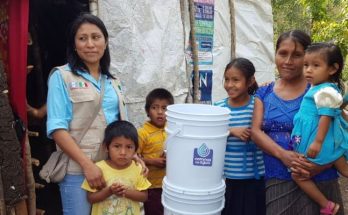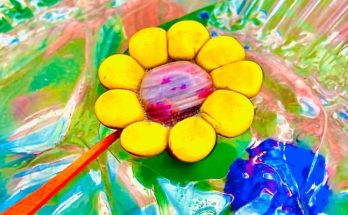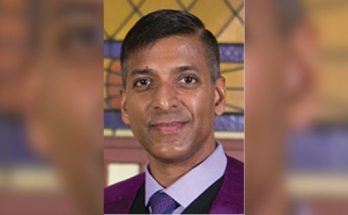By Fátima Almeida
World Water Day is a special occasion to raise community awareness about our water issues. This year, the UN World Water Day which was celebrated on March 22, focuses on groundwater. This is an important opportunity to «make the invisible, visible.» At Caminos de Agua we want to seize this opportunity to remember the importance of our watershed, the Upper Rio Laja Watershed, and the impact that the overexploitation of this groundwater is having on the Upper Laja River basin and on the life of our community.
This year Caminos de Agua, commemorating World Water Day, invites you to participate in the guided tour «Our Water, Our Body, Our Future» at the Caminos de Agua office located in Jose Maria Correa 23A, Colonia Santa Cecilia, this Saturday, March 26. The tour consists of a series of interactive stations where we will talk about the regional water situation in the Upper Laja River aquifer, as well as the work of Caminos de Agua and the demonstration of different alternatives to obtain safe water along with some exercises and reflections. At the closing we will have a station to capture sensations and hopes in a collective work of art. There will also be an information table throughout the day.
Each tour will last two hours with a maximum of 10 participants each. Tours will be available in Spanish and English. For more details and to register go to dma.caminosdeagua.org
Remember to register as there is limited space. In case you do not want to take the guided tour or do not register, we invite you to visit us anyway; we will have information tables and an outdoors station where a collective work of art will take place. We will be taking preventive measures for COVID, so please bring your masks, and don’t forget to bring your water bottle!
Register at: dma.caminosdeagua.org

About our groundwater
The main source of water for the 680,000 inhabitants that make up the Upper Laja River watershed, is a groundwater source; an aquifer that year after year decreases its water levels by two to three meters, with no opportunity for recharge. This overexploitation, largely due to the export agroindustries established in the region (which account for 88 percent of water use), is literally leaving many communities without water and others with water contaminated with arsenic and fluoride. These chemicals are highly harmful to human health, causing, among other diseases, dental and skeletal fluorosis, chronic renal failure, learning and cognitive development problems in children, as well as different types of cancer.
Caminos de Agua has been working for years in rural communities and more recently in urban areas of the region with different areas of action: rainwater harvesting in rural communities along the watershed that covers seven municipalities in the state of Guanajuato including San Miguel de Allende; research and development of technology; filters, groundwater treatment systems (STAS), and sanitation solutions such as dry ecological toilets; education for communities through technical, educational and informative workshops; water quality analysis of the entire watershed area through our water monitoring program to know and understand the levels of contamination in the water; and offering free public data on the water quality map.
This 10-year experience in which Caminos de Agua has been present in rural contexts has allowed us to observe first-hand communities that have reached Day Zero –when a community runs out of safe water–. We have also witnessed the impacts on people’s health due to the continuous consumption of water containing arsenic and fluoride. The urban context is also no stranger to situations of water scarcity and contamination. On the contrary, it is increasingly present and although we still do not know many things about the urban context, it seems important to begin now to expand the information on the reality of water in the region within this context. Under this premise, this year we promoted the Urban Water Initiative with the slogan: «Our Water, Our Body, Our Future,» with the intention of getting involved citizens oriented towards a new water culture that gradually reflects actions to obtain safe water sources in San Miguel, placing health at the center, with strategies such as rainwater harvesting systems for human consumption and other integrative alternatives including rain gardens and reforestation.




